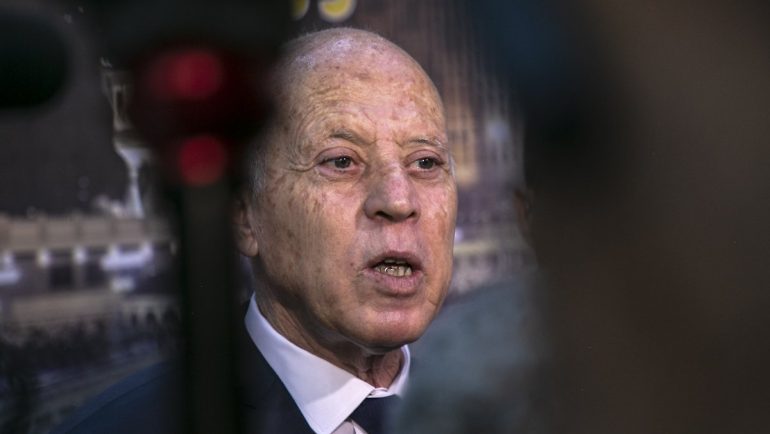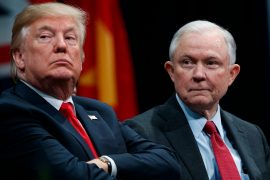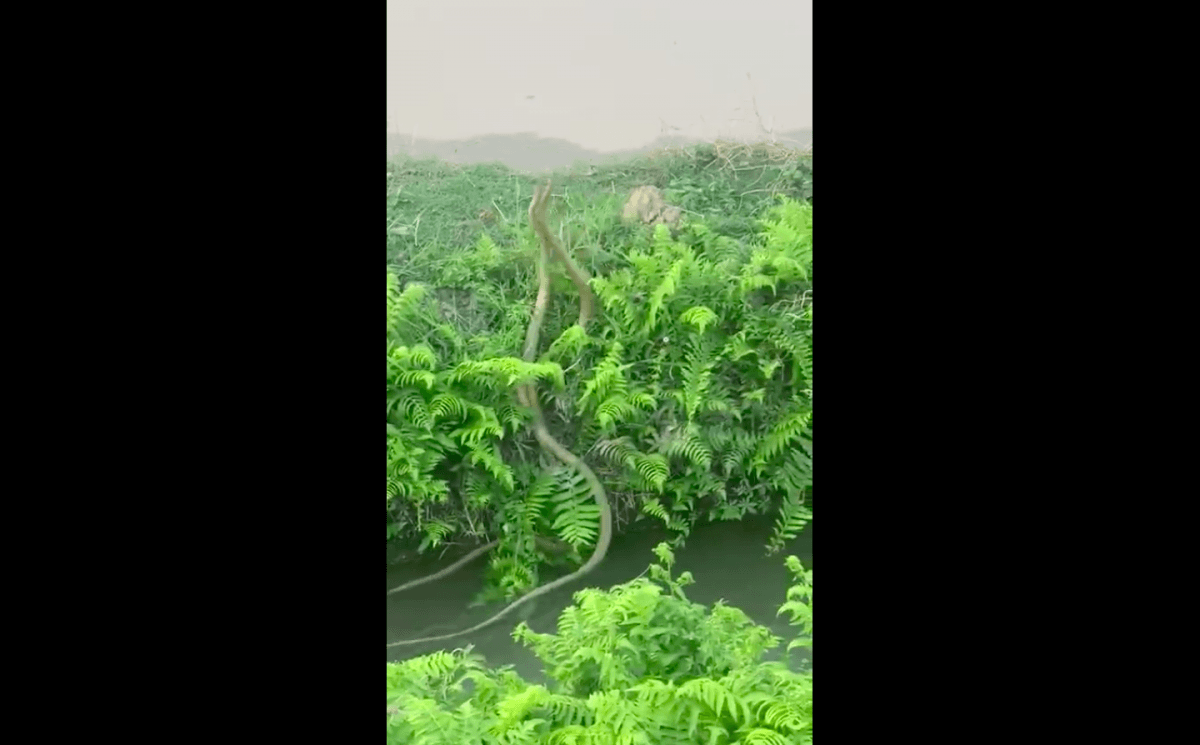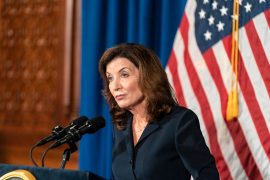presidential referendum
What’s at stake for Tunisia
What’s at stake for Tunisia
Guest contributions by Philippe Bremer and Malte Geyer
07/23/2022, 4:09 pm
For a long time, Tunisia was seen as a role model for democratic change in the Arab world. Now the country is voting on a draft constitution that can pave the way for dictatorial rule.
This Monday, Tunisian President Kais Saied has called on the Tunisian people to vote on a new constitution in a referendum. The founding day of the Tunisian Republic will also mark one of the most memorable events in recent Tunisian history: a year earlier, Saeed suspended parliament and summarily dismissed the prime minister and his government. In the months that followed, the Tunisian president, who now ruled by decree alone, not only gradually dissolved the separation of powers.
Saeed also dissolved the Supreme Judicial Council and parliament, dismissed dozens of judges and suspended the 2014 constitution, which was considered a milestone for the Arab world. For a long time, Tunisia was considered a role model for a democratic transformation that from 2011 became the starting point for revolutions and uprisings in the Arab world. The jolts and breaks in Tunisia’s lighthouse legend after the euphoria can no longer be ignored, latest after 25 July.
The president’s drastic move last summer came at the right time for many, and he was celebrated for his determination on the streets of Tunisia. Not only was the country long in a deep economic and financial crisis that everyone could feel, and which was aggravated by the consequences of the pandemic. Particularly in terms of domestic politics, much of Tunisia has recently seen their country in a hopeless stalemate. Until recently, many compared its democratic legacy to simply a political class notorious for being corrupt, whose horrific inability to act became particularly apparent during the dramatic weeks of the pandemic.
a feeling of indifference towards the expelled ruler
Since the political newcomer’s surprise election in October 2019, Sayeed’s program has inspired large sections of the population, especially young people. He proclaimed a fight against corruption and political elites, as well as a political deepening reform for more direct democracy, packaged in language and the symbolic action of populism to appeal to the electorate. Some of his critics brushed off their concerns about an authoritarian drift in the Syed system. The lack of the expected democratic dividend apparently put enormous pressure on the young Tunisian democracy to succeed and deliver in the face of economic decline and disillusionment with politics. Under the authoritarian regime of Zein al-Abidin Ben Ali, some populations succumbed to a nostalgic longing for stability in the years before 2011.
Tunisians are to vote on Monday in a referendum on the draft constitution, which was presented to the public only on June 30 by Kais Saied. After only a few days, the president spoke again and presented a revised version of his draft constitution. Even though the changes were less of a de facto nature than the word reform, it is further evidence for many critics in the country that not only the manner in which the referendum was conducted is questionable, but also the draft: the draft constitution contains many , and the elements in Tunisia were criticized as backward and undemocratic. Significantly, the head of the drafting commission appointed by the President publicly distanced himself from it after the text was published. The draft has nothing to do with the version submitted by the Commission “in any way”. Instead, he affirmed the draft’s “considerable risks and shortcomings” with the potential to “pave the way for authoritarian rule”.
The independence of the judiciary is gone
In fact, the design is made entirely for the president. Presidential, parliamentary and local elections are to continue. But the draft envisages a presidential system, with no major restrictions or accountability. Checks and Balances: None. The President alone appoints the government and can dismiss it at any time. He could also dissolve the legislature, which is now made up of two chambers instead of one – without clarifying how these would work together and what the new chamber of “regions and provinces” should have. He can introduce legislative proposals without the participation of others; In the case of budget laws, for example, he alone is entitled to do so. Though his tenure is limited to two five-year terms, it can also be extended in exceptional cases.
The separation of powers with the judiciary has also been abolished. It is true that the Constitutional Court provided for in the 2014 Constitution never came into existence, as the Parliament was not able to nominate constitutional judges before its dissolution. In the current draft, however, the Constitutional Court explicitly loses powers; Its cast also changes. Along with this, the President appoints every single judge in the country.
The basic freedoms of the 2014 Constitution remain largely the same. It is not only here, however, that the draft often refers to ordinary law, for example in the Supreme Judicial Council or the specific function designation of municipalities. The details are therefore (still) vague, much unclear; Citizens largely do not know what they are voting on. Unlike before, there is neither an anti-corruption authority nor a human rights commission.
Departure from secular curriculum?
Finally, the draft also raises the question of what role Islam should play in the state. Previously, the religion of the Tunisian state was Islam. The draft now stipulates that “only the state should strive to achieve the goals of Islam within the framework of a democratic system”. Its meaning in practice remains uncertain, but the revision of the scripture caused astonishment, as Sayeed was previously considered a supporter of secularism and a staunch opponent of Islamism.
But apart from the content of the draft, the constitutional process is also criticized. The referendum explicitly contradicts the current constitution, which provides for the participation of Parliament and the Constitutional Court in constitutional amendments. The process was neither inclusive nor participatory in a relatively short period of time. The president also stopped a public discussion.
Even though there has been little resistance by political parties, civil society, and the population as a whole during Syed’s years of consolidation of power, Syed’s constitutional experiment has benefited less from its chances of success and more than the negative of collective democracy. The problems of experience and mobilization of opposition forces: before the referendum which Said wants to use to legitimize his “new republic”, Tunisia is sharply divided.
a dark day
President Saeed already held an online referendum in the spring to demonstrate his approach to dialogue and participation with the people in preparation for the upcoming referendum. Tunisian turnout, however, was grim, with only seven percent of the voting population. Even if a much higher turnout is to be expected this time – which current surveys now believe – the country faces a crucial test. To avoid destabilizing Tunisia, a national dialogue involving all actors will be necessary in the long run, not only in the case of weak participation.
So far, many in Tunisia have felt that the draft constitution and referendum have stalled the country’s democratic transformation for some time. Overdue reform, a restructuring of the state budget and economy and thus a long-term improvement in the living conditions of many Tunisians seem to go a long way. The new constitution hardly addresses these issues. This could quickly lead to difficulties in convincing the new system under Kais Syed, should it – like previous governments – not be able to deliver in the end.
The systematic disintegration of democratic achievements not only gave way to a presidential-autocratic government, but confirmed doubts about the viability of democracy throughout the Arab world. With the current development, Tunisia is threatened by further potential for conflict. Regardless of the outcome of the referendum, 25 July promises to be a dark day for Tunisian democracy, its remaining supporters in Tunisia and its former admirers in the region and Europe.
Philipp Bremer is the Head of the Rule of Law Program for the Middle East and North Africa at the Konrad Adenauer Foundation (KAS). Malte Gere is the head of the KAS office in Tunisia.

Introvert. Proud beer specialist. Coffee geek. Typical thinker. Pop culture trailblazer. Music practitioner. Explorer.





